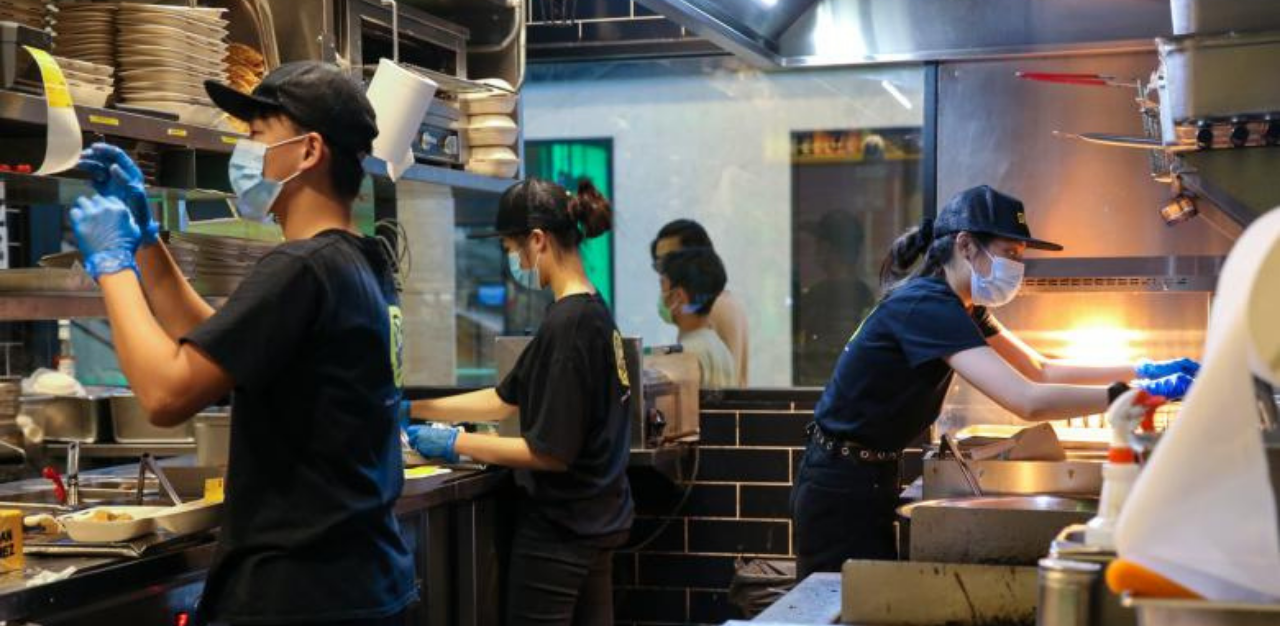According to American poet, novelist, and short story writer Paul Lawrence Dunbar, “All work and no play makes Jack a dull boy. All play and no work makes Jack a mere toy.”
But for some young Singaporeans, it is all work and no play, not even during school breaks.
While some students and their families plan to spend the week-long March holiday on recreational activities, many others have to roll up their sleeves to work to supplement their household income, and help put food on the table.
According to figures published by the Ministry of Manpower (MOM) and released in January this year, the number of young workers aged 15 to 19 years old for 2021 stands at 28,800, lower than 2020 when the number was 30,100.
Before the pandemic, the number of youth workers remained well above 31,000 between 2011 and 2019.
Human resource experts, employment agencies and social workers say the reduction in numbers can be attributed to the risk of exposure to Covid-19.
Despite the risks, some youths still continue to work during the school holidays and outside of school hours.

Sixteen-year-old Alex worked at GOPIZZA in Plaza Singapura during the school holidays and continued working there on weekends during the school term before his homework started piling up. He realised that he was unable to cope with both school and work, and had to make the difficult decision to focus on his studies.
“I had to work because my mother’s income alone is barely enough to support us so I decided that I will work for my own pocket money and also give her some money to ease her financial burden,” he says, adding that he gave half his salary to his mother and saved the other half for his own needs.
Alex says it was “very stressful and tiring” because there would be “some random customer losing his temper at me for the slightest mistake, or somebody who was just plain rude”.
“Also, I had to do all the heavy lifting of stocks since most of my coworkers were old and could not do it,” he adds.
Alex also says that working at GOPIZZA had taught him skills such as socialising and interacting with different people, and improving his communication skills when it was “my turn to be the cashier for that day”.
The higher NITEC student in electrical engineering does not feel that work impacted his academic results then because he had enough time to study, except those times when he just “couldn’t understand the engineering concepts properly despite my best attempts”.
Alex says he feels envious of his peers who are able to enjoy time out during school breaks. “I think I would be like them if my family’s financial situation was better. Yet I feel fortunate because my family is very loving, and this is all I ask for,” he adds.
According to the MOM, children and young persons are restricted in the type of work they can do and this is governed by Part VIII of the Employment Act and the Employment of Children and Young Persons Regulation.
For example, if children and young persons are hired for manual labour, they cannot work at night, and they cannot work on days off without permission from the Commissioner for Labour.
Unlike Alex Shen, who is also 16, worked as a hamper packer during the December holidays because he wanted to” have some extra cash to spend during the term break”.
“I did not have to support my family, but I did not want to ask for more from my parents. I saw how hard they work just to support the family,” he says, adding that he comes from a “modest working-class background”.
Fortunately for Shen, the work was not too tough and he enjoyed his time there as “the people were very friendly and this made the work much more enjoyable”.
Hamper packing requires teamwork, so Shen says he learned how to collaborate with people from the different age groups effectively. “I also learned better time management skills and working under pressure,” the Singapore Polytechnic student says.
Shen would have preferred to continue working there to earn more pocket money while he waits for his polytechnic course to start, but the demand for hampers dried up after the festive seasons ended and the company no longer required his services.
Since there is still some time before the academic year begins at the Polytechnics, Shen intends to look for another part-time job so that he can continue to rely on himself.
Ryan, on the other hand, took up “odd jobs such as being a waiter and as a store assistant” throughout his three years as a full-time diploma student.
“I did not have stable financial support from my parents, so I wanted to provide a stable income for myself and also build an emergency fund in case of any contingencies,” he says.
“I started working during the term break and I decided to continue even when school started as I really needed the money. I live with my grandparents and they are no longer working, so I feel bad taking money from them as they would have to dip into their savings”, says the 22-year-old, adding that he also gave part of his income to his grandparents to help with the household expenses.
“However, I realised that my studies were getting affected over time. I would usually stop working whenever it was the exam period so that I could have more time to revise,” the Republic Polytechnic graduate says.
Ryan, who is currently in National Service, received financial assistance from the polytechnic for his tuition fees and the required laptop during his time there.
He admits it was not easy juggling work and studies. “Some days were more difficult than others, but the experience had made me stronger as a person and taught me to be independent. Working in different jobs also helped improve my social skills and I have made many friends along the way.”
Ryan’s determination paid off. He graduated from Republic Polytechnic with a Diploma in Biotechnology and has secured a place at Singapore University of Technology and Design (SUTD).
Join the conversations on TheHomeGround Asia’s Facebook and Instagram, and get the latest updates via Telegram.





























